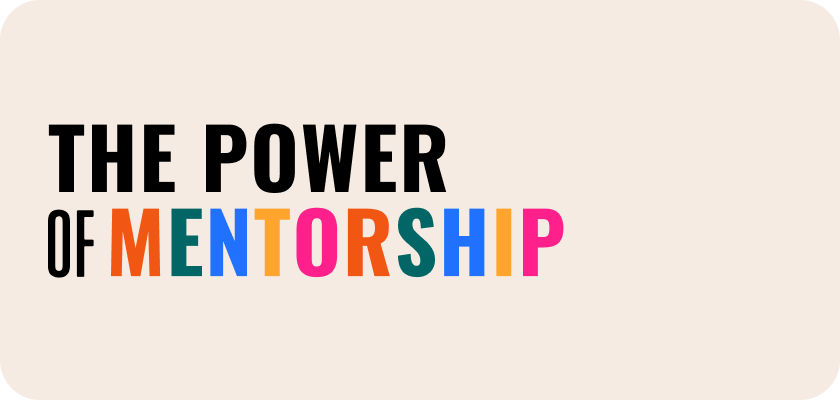Jonathan Lukens

Most adults can look back over their lives and identify a handful of life-changing mentors they were lucky to meet. In fact, luck is the foundation of most mentorships – the right person comes into your life at the right time and helps you get on a better path. These important people are called “natural” mentors.
Unfortunately, not everyone has the good fortune to run into a series of life-changing natural mentors. Both ingrained societal structures and random chance disadvantage many students and professionals in their growth journeys. This is where structured mentoring programs come in. From well-known impactful programs like Big Brothers, Big Sisters to hundreds of local programs around the country, both volunteer and professional mentors fill a glaring need by providing youth vital guidance as they approach adulthood.
During the Covid-19 years, many of these in-person programs were forced to try virtual mentoring. Using texts, calls, and video conferencing, remote mentors adapted in the same ways remote students, teachers, and workers did. Now, as distance learning and working (both synchronous and asynchronous) have become more accepted and effective, it is time for mentoring to take the same leap.
At Betterwise, we have chosen to build our learning model around mentorship because we feel the mentoring process is uniquely situated to address the most pressing needs of 2020’s teens.
An impactful mentor is like a teacher, coach, friend, cheerleader, critic, counselor, and agent all in one person. They model, instruct, encourage, and care. They connect, push, support, and inspire.
The “work” of a mentor is to…
A study published in the Journal of Youth and Adolescence in 2021 found that adolescents who had at least one non-parental adult mentor experienced better psychological and academic outcomes than those without a mentor. The study revealed that mentored teens displayed higher levels of self-esteem, greater academic achievement, and increased social skills, underscoring the power of mentorship in shaping young lives.
Mentorship can also be particularly impactful for at-risk teens. A 2020 study published in the Journal of Community Psychology found that the presence of a mentor reduced the likelihood of substance abuse and juvenile delinquency in vulnerable adolescents. By providing guidance, support, and a stable adult presence, mentors can help steer these teens away from high-risk behaviors and towards healthier, more productive paths.
The benefits of mentorship also extend to the development of critical life skills. A 2019 report by The National Mentoring Partnership highlighted that mentorship relationships were linked to improved decision-making, goal-setting, and problem-solving abilities among teens. Equipped with these essential skills, young people are better prepared to navigate the complexities of adulthood and achieve long-term success.In addition, mentorship frequently has positive effects on teens’ career prospects. A 2020 study in the Journal of Vocational Behavior found that mentored youths had a higher likelihood of securing employment and pursuing higher education compared to their non-mentored peers. By exposing teens to new opportunities and offering valuable career advice, mentors play a crucial role in shaping the future workforce.
Once you see how transformative a mentor can be, to both your sense of self and your tangible life circumstances, you’re more likely to seek out others. This is the first part of what we call the “mentor cycle.” A person who’s looking for older, wiser, and more experienced and connected people to help guide them on their path is someone actively applying a growth mindset and consciously expanding their social network. In a young person, it demonstrates a forward-thinking maturity that stands out.
The second part of the mentor cycle is what happens when that mentor-seeking young person grows up. Someone who knows firsthand the value of being mentored is much more likely to find people to mentor themselves. Whether from a desire to pay forward the benefits they gained from their own mentors or just for the joy of connecting with energetic, full-of-potential young people, former mentees often never stop mentoring throughout the rest of their lives.
At scale, such a cycle has the potential not just to improve the lives of millions of individuals, but also to help shape a more engaged, understanding, equitable, and optimistic society.
The Betterwise vision of mentor-based instruction’s potential has another high-level element: helping to solve the problems facing education. We believe our approach could significantly impact gaps in student engagement, buy-in, and trust, as well as the lack of practical life skills instruction and customized career exploration. We see this transformative power as the “mentor promise.”
Imagine a world where every high school student has access to a team of caring, expert mentors prepared to help them navigate their particular skill-building and perspective-expanding journey. The mentor’s role is not about providing a one-size-fits all answer, but rather empowering individuals towards a path that better suits them, prioritizing a student-centered approach. Focusing as much on helping students develop passion, confidence, resilience, and efficacy as on nuts and bolts, mentors can get kids ready for facing challenges, handling failures, pursuing opportunities, and flexibly responding to a changing world. Parents, teachers, coaches, and family friends are all doing their best, but sometimes students just need an outside source of attention and perspective.
Most importantly, the promise of an app-based life and career mentoring platform has the most power to help young people in vulnerable situations where all of the adults in their lives are unavailable to give them that critical attention and perspective. Every Betterwise mentor is committed to helping close the equity gap – for one student, for a hundred, thousand, or – our ultimate vision – millions of students. Every mentor wants to make the world a better place by helping their mentees. Multiplying this motivation by thousands of mentors who can each reach thousands of students, within a structured system for fostering relationship-building and wisdom-conveying, gets us there.